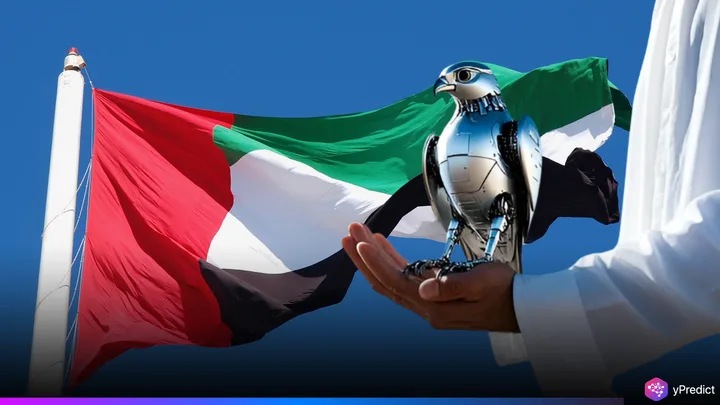
A government-backed research institute in Abu Dhabi has launched a powerful Arabic-language AI model to secure its lead in the Middle East’s fast-growing AI race. The new tool, called Falcon Arabic, was unveiled by the Technology Innovation Institute (TII). It is designed to handle both Modern Standard Arabic and regional dialects. TII says Falcon Arabic performs as well as models up to ten times its size. The launch signals the UAE’s growing push to build local AI systems, even as other countries weigh the steep cost of developing their own.
Falcon Arabic Targets Dialects and Smaller AI Footprints
The Falcon Arabic AI Model was trained on a diverse dataset, covering both formal Arabic and regional dialects across the Middle East. That gives it an edge over most global models, which often fail to understand the complexities of the Arabic language.TII claims the system matches or beats much larger models from global tech players. It also released Falcon H1, a compact version that reportedly outperforms Meta’s and Alibaba’s similarly sized tools.
Both are open source, allowing developers to adapt them freely.“Arabic has long been underserved in AI,” said a TII spokesperson. “Falcon helps fix that imbalance.” The model is expected to be useful in sectors like education, customer service, and public communication, where accurate Arabic understanding is crucial.
Rankings Drop as UAE Doubles Down on Infrastructure
Falcon made waves in 2023 when it ranked first among open-source models on Hugging Face, a key industry platform. But as of last month, it had dropped out of the top 500, with usage trailing far behind tools from Meta and China’s DeepSeek. Despite the decline, the UAE continues to invest heavily in AI infrastructure. Tech group G42 is building a massive 5-gigawatt data center campus in Abu Dhabi, in collaboration with U.S. firms. It’s one of the largest AI data projects in the region.
Through its investment fund MGX, G42 is also backing global players like OpenAI and Elon Musk’s xAI. MGX is partnering with Nvidia and French firms to develop what could become Europe’s biggest AI data hub. Still, Falcon’s fading visibility in global rankings shows that model strength alone isn’t enough; adoption and scale remain major hurdles.
Can Regional AI Model Succeed Without Global Backing?
The launch of Falcon Arabic underscores the UAE’s intent to build not just powerful technology but culturally relevant tools. Arabic speakers often face poor support in global AI systems, and Falcon aims to close that gap. But staying competitive will be tough. Without large user bases or continuous upgrades, even advanced models risk being left behind.
To thrive, Falcon AI Model may need deeper regional cooperation or unique regulatory support to protect and grow local language systems. The UAE’s strategy mixes local development with global investment. Whether this hybrid model can deliver a lasting impact remains to be seen. But the ambition is clear: the region wants to shape AI’s future, not just follow it.
Will Arabic AI Model Lead or Lag in the Global Race?
Falcon Arabic marks a bold attempt to prioritize Arabic voices in AI. Its release shows the UAE’s commitment to both innovation and identity. But questions about global relevance, user adoption, and technological pace remain open. Ethical concerns, open-source transparency, and regulatory frameworks will likely shape how widely Falcon is used. As the UAE builds new AI infrastructure and forges global partnerships, it’s staking a long-term claim in AI. Whether that pays off will depend not just on tech performance, but on how well it connects with people, industries, and developers across the Arabic-speaking world.






